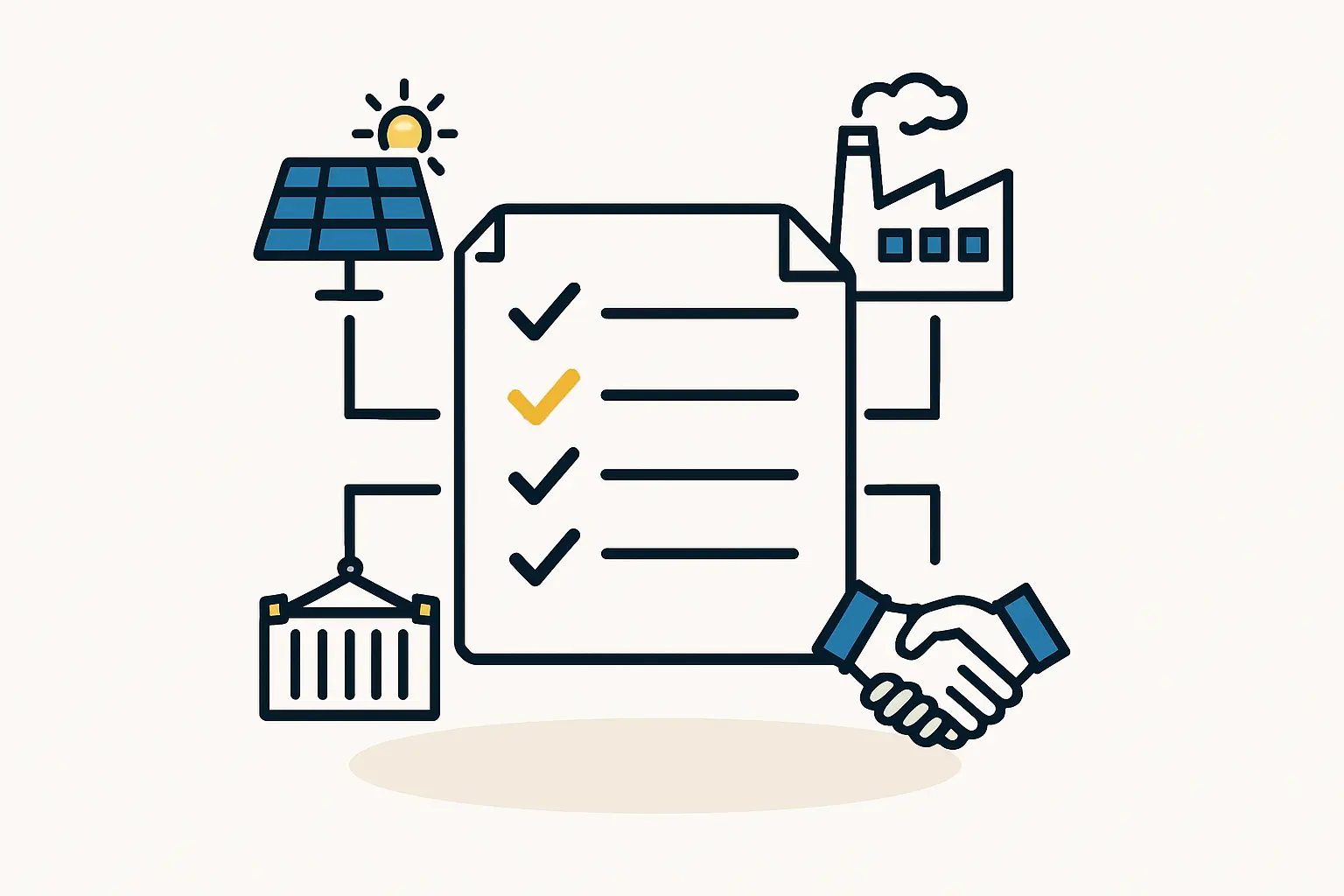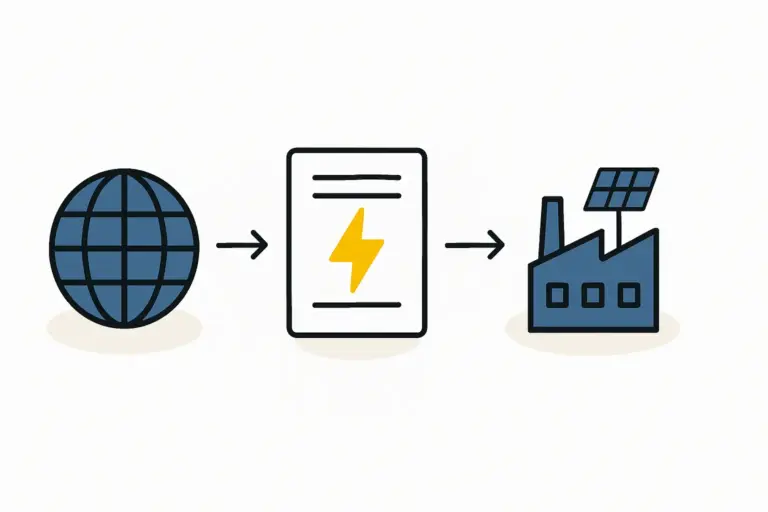For an entrepreneur planning to establish a solar module factory, the initial equipment list represents a significant capital outlay. An often-overlooked cost, however, is the customs duty and import tax on this machinery. In a market like Iraq, these duties can substantially increase a project’s initial investment.
Fortunately, a clear legal framework for exemptions exists, turning a potential financial burden into a strategic advantage for prepared investors. Understanding and navigating this administrative process is more than just a bureaucratic step; it’s a critical component of financial planning that directly influences the viability and profitability of a new solar manufacturing venture. This guide outlines the official procedure for securing these valuable exemptions.
The Legal Foundation: Investment Law No. 13 of 2006
The primary mechanism for these benefits is Iraq’s Investment Law No. 13 of 2006, legislation designed to encourage foreign and domestic investment by creating a more favorable business environment. For entrepreneurs in the solar sector, this law is the cornerstone of financial incentives.
Its core principle is to support new industrial projects by easing the financial burden of import duties on essential assets. This frees up capital that can be allocated more efficiently toward core operations, like facility setup, staff training, and initial production runs.
What Imports Are Covered by the Exemption?
The law provides broad coverage highly relevant to setting up a solar module production line. The exemptions typically apply to two main categories of goods:
Capital Goods for Factory Setup
This category includes all the machinery, equipment, tools, and spare parts required to establish the production line. From the solar cell stringer to the final laminator and testing simulators, all core equipment is eligible, directly reducing upfront capital expenditure. A clear understanding of these savings is essential when calculating the initial investment for the project.
Raw Materials for Production
The exemption also extends to raw materials imported for production, covering items like solar cells, EVA film, backsheets, and aluminum frames. This benefit is particularly significant because it lowers operational costs during the factory’s critical initial phase. Notably, the exemption for raw materials is typically granted for the first three years of operation, providing a crucial runway for the business to establish itself in the market.
The Step-by-Step Administrative Process
Securing the exemption requires a methodical approach and careful documentation. The process is managed by Iraq’s investment promotion bodies: the National Investment Commission (NIC) at the federal level and the Provincial Investment Commissions (PICs) at the regional level.
Step 1: Obtain an Investment License
Before any exemption can be considered, the project must be officially registered and licensed by either the NIC or the relevant PIC. This license is the foundational document recognizing the venture as a legitimate investment project eligible for incentives under Law No. 13.
Step 2: Prepare and Submit a Detailed Import List
The investor must prepare a comprehensive list of all machinery, equipment, and raw materials intended for import. This list must be highly detailed—including specifications, quantities, and estimated costs—as its accuracy is paramount and forms the basis of the exemption request. Turnkey line providers, like J.v.G. Technology, typically supply these detailed technical specifications as part of their project documentation.
Step 3: Review and Approval by the Investment Commission
The submitted list is reviewed by the NIC or PIC to verify that the requested items are necessary for the project as described in the investment license. The commission also assesses whether goods of comparable quality and price are available on the local market, as the exemption is primarily for items that cannot be sourced domestically.
Step 4: Issuance of the Official Exemption Letter
Once the list is approved, the Investment Commission issues an official letter. This document is addressed to the Iraqi Ministry of Finance and the General Authority for Customs, formally requesting that the specified goods be exempted from all customs duties and taxes.
Step 5: Customs Clearance
This official exemption letter is the key document to present to customs authorities when the shipment arrives. It serves as the legal instruction to clear the goods without levying any import duties.

Key Considerations for a Smooth Process
While the procedure is well-defined, investors should keep several practical points in mind to avoid delays.
-
Documentation Precision: Any discrepancy between the submitted list and the actual shipment can lead to complications. The commercial invoice and bill of lading must match the details in the exemption letter perfectly.
-
The ‘Local Availability’ Clause: Before finalizing import lists, investors should conduct due diligence on the availability of required items within Iraq. While most specialized solar manufacturing equipment is not produced locally, certain auxiliary materials might be. Demonstrating this research strengthens the application.
-
Timeline Planning: The administrative process for obtaining the exemption letter takes time. Investors should begin this process well in advance of their equipment’s planned shipping date to ensure the letter is ready when the goods arrive. Experience from past J.v.G. turnkey projects suggests that building in a buffer of several months for administrative procedures is a sound strategy.
Frequently Asked Questions (FAQ)
How long does the exemption application process typically take?
The timeline can vary depending on the Investment Commission’s workload and the project’s complexity. A typical timeframe, from submitting the import list to receiving the exemption letter, can range from a few weeks to several months. Early application is strongly advised.
Do these exemptions apply to spare parts imported after the initial setup?
Yes, exemptions can cover spare parts required for the maintenance of imported machinery. These should ideally be included in the initial comprehensive list or can be applied for separately as needed, following a similar process.
What happens if the project requires machinery not included on the original approved list?
If additional machinery is required later, a new application must be submitted to the Investment Commission for approval. Each new import requirement must be justified and follow the standard procedure.
Is it necessary to hire a local consultant or lawyer for this process?
While not legally mandatory, engaging a local legal or business consultant with experience navigating the Investment Law can be highly beneficial. They can help ensure all paperwork is prepared correctly and follow up with the relevant authorities, potentially expediting the process. This is particularly useful for foreign investors unfamiliar with local administrative practices.








